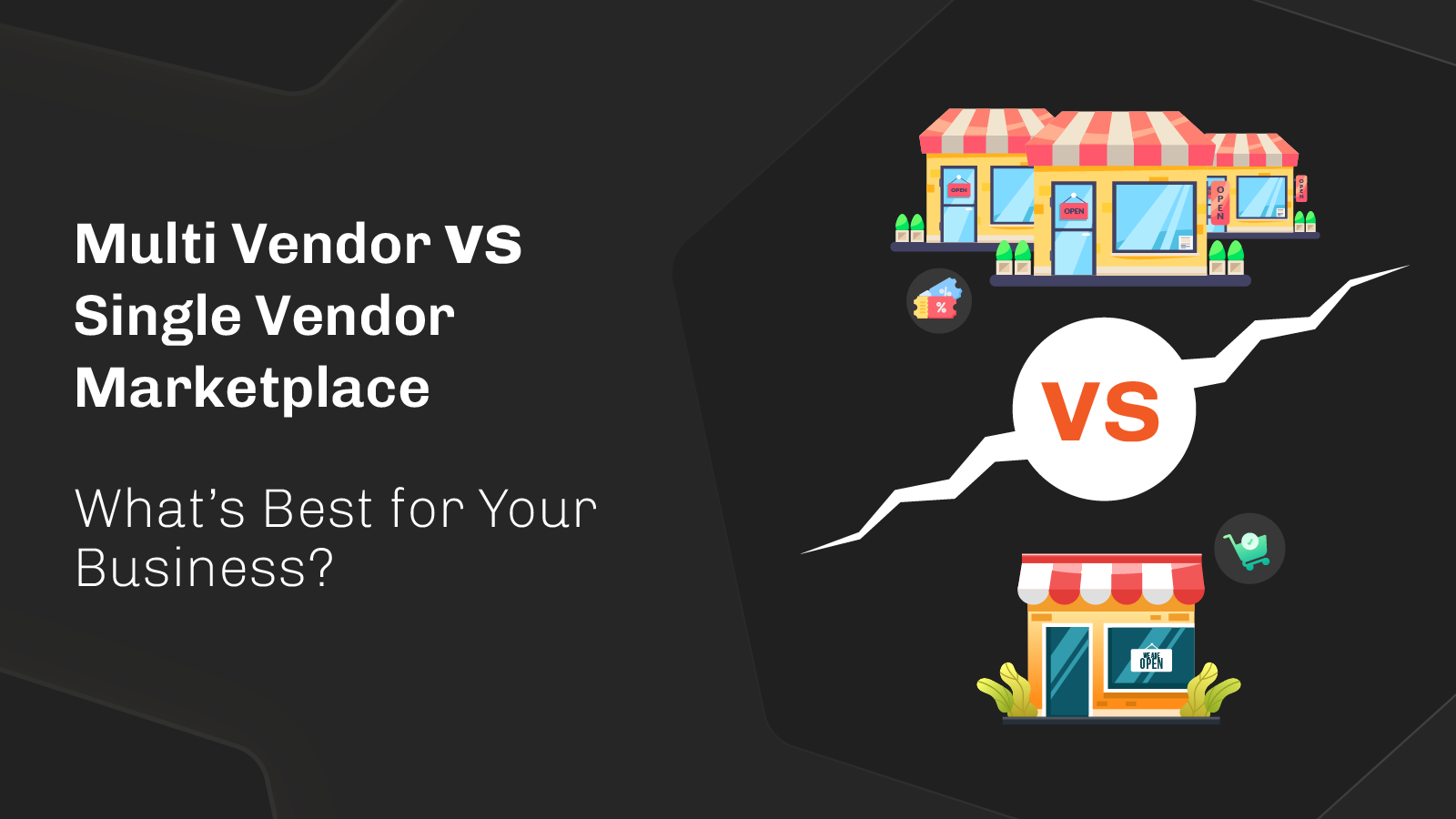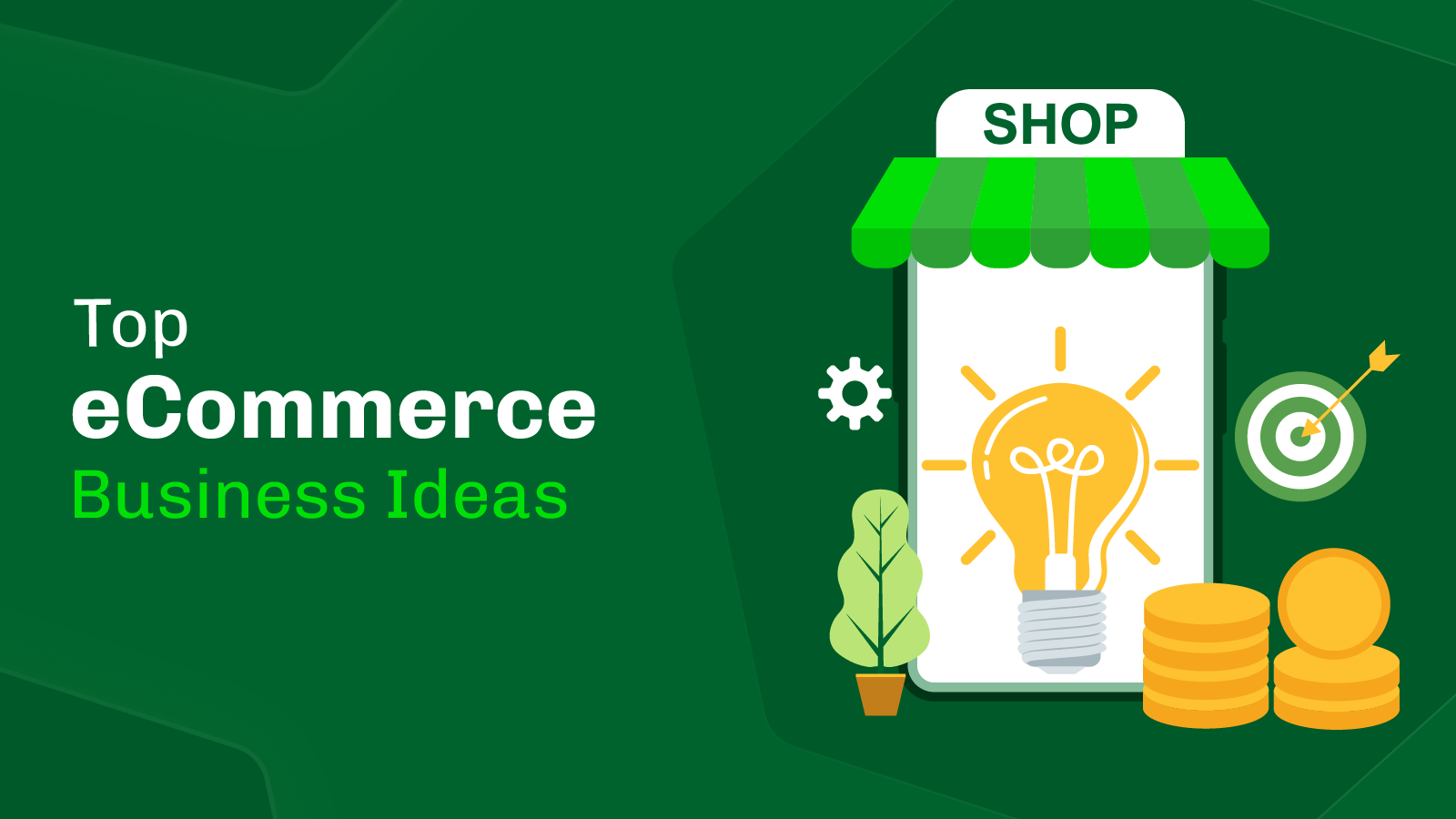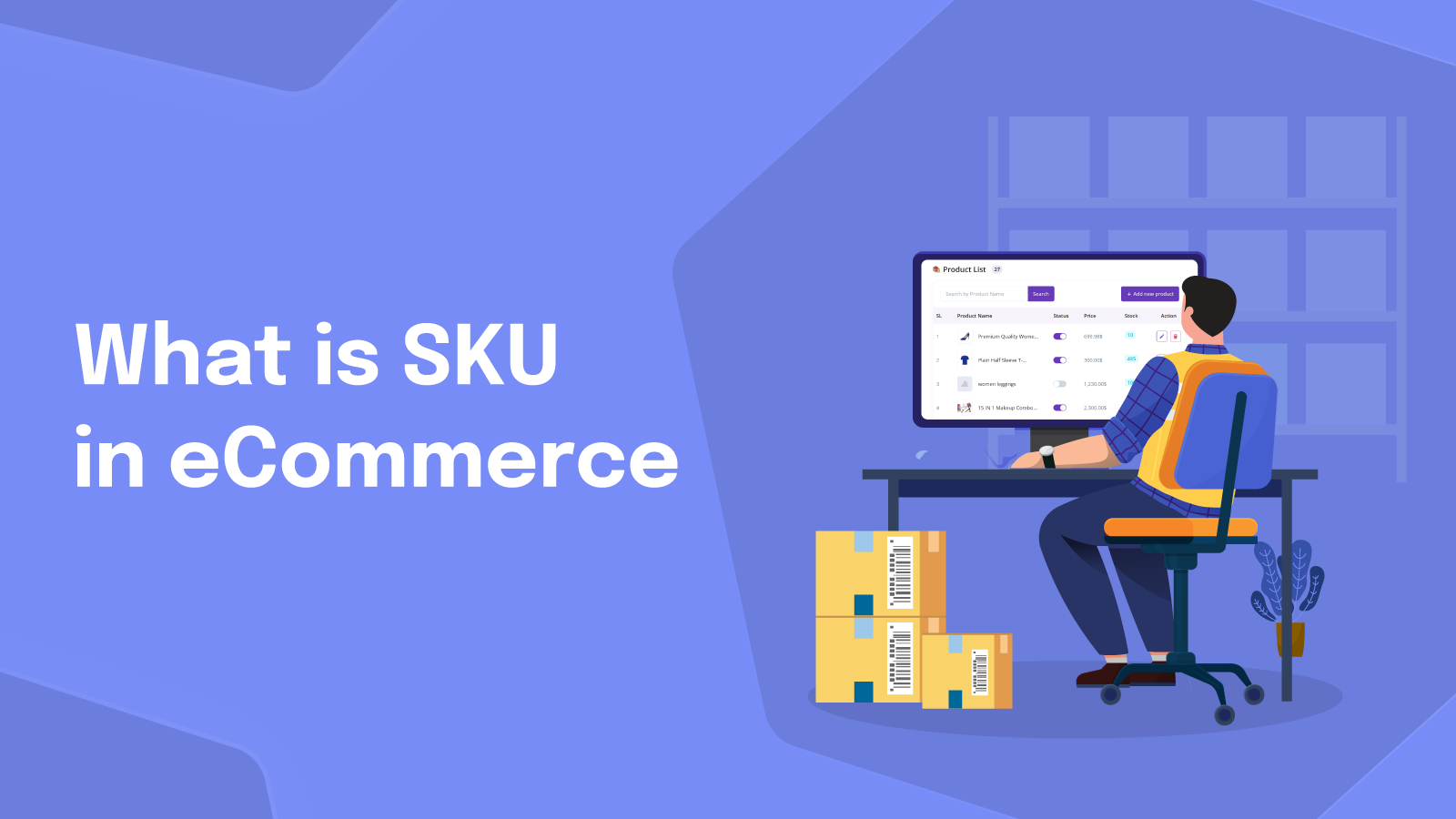eCommerce has come a lot far from where it was started! With the implementation of digital marketing, we can see the evolution of eCommerce today and it continues its journey even greater speed.
By the time of 2028, eCommerce sales are expected to reach an outstanding US$ 70.9 Trillion worldwide. This isn’t just a trend; it’s a new way of doing business.
But what exactly is digital marketing in eCommerce and why should businessmen like you care about it? Digital marketing plays a central role in this online shopping revolution. It’s all about using the internet to connect with your customers, boost sales and grow your brand.
In this blog, I’ll break it down in simple terms, exploring the core concepts and strategies that make eCommerce digital marketing so vital. So, without any further delay, let’s get started!
What is eCommerce Digital Marketing?
Digital marketing in eCommerce will help sell and connect your products to your targeted customers and brands online. Who is looking for your products or services online that you are selling on your eCommerce website?
Digital marketing uses different channels like Search Engine Optimization (SEO), Social Media Marketing (SMM), Search Engine Marketing (SEM), Email Marketing, Display Advertising, Content Marketing, and other online channels to reach and engage your targeted customers, encourage them to purchase and Create brand loyalty.
Types of eCommerce Digital Marketing
If you want to grow your eCommerce business online, you need to have a clear understanding of eCommerce Digital Marketing. It will help you drive relevant organic traffic and customers to your eCommerce store. Please check the following checklist to learn about the Types of Digital Marketing for eCommerce:
- Search Engine Optimization (SEO)
- Pay-per-click advertising (PPC)
- Content Marketing
- Social Media Marketing (SMM)
- Email marketing
- Influencer marketing
- Affiliate marketing
Know About Different Types of Digital Marketing Channels for eCommerce –
Search Engine Optimization (SEO)
When you search for something on Google (or any other search engine), the results that pop up aren’t random. These search results are carefully assembled by search engines to show you the most relevant and useful information. There are different types of SEO approaches, like On-page SEO, off-page SEO, technical SEO, and local SEO.
Now, let’s talk about its components–
One of the main ingredients in SEO is keywords. These are the words or phrases people type into the search bar. Using those keywords strategically throughout your website (in titles, headings and the body of your content) tells search engines, “Hey, my bakery has the best cupcakes in town!”
Let’s talk about links. When other websites link to your bakery site, it’s like getting a virtual thumbs-up from the online community. It tells search engines that your website is trustworthy and worth showing to others. So, reaching out to food bloggers or local directories to link to your site can be a sweet SEO strategy.
Keep in mind that SEO ranking can take weeks or months. So, patience is key in SEO journey.
Pay-Per-Click (PPC) Advertising
PPC stands short for Pay-Per-Click, which is a way of online advertising. Advertisers pay a small fee to Google or social media platforms every time someone clicks on their ads.
For example, when you search for something on Google, you’ll notice those ads at the top and bottom of the page. Those are PPC ads.
Let’s break it down. You’re selling Philips Coffee Machines on your eCommerce site which is located in Mumbai, Maharashtra. You want the coffee shop owners around your location to know about the products you sell at a competitive price. How will you do it?
PPC advertising is a more targeted advertising method in cases like this. Because it has more conversion and CTR (Click-Through Rate) than any other advertising. You choose keywords like “best coffee machine in Mumbai.” When someone searches for those terms, your ad has a higher rate of showing up on Google and people will click on your product to view the details. This will automatically boost your eCommerce website traffic and sales.
Some of the famous PPC ads are- search ads, display ads, video ads, social media ads, Gmail ads, etc.
But there’s a catch. PPC can be competitive. Other coffee machine sellers might be bidding on the same keywords. So, it’s crucial to choose your keywords wisely and create eye-catching ads that stand out.
Content Marketing
Content marketing in digital marketing means creating and sharing valuable online materials like articles, videos and social media posts to attract, engage and retain your target audience. It’s a way to provide useful information and build trust, ultimately driving people to your website or business.
Imagine you’re running an online bookstore and you want to let the world know about your amazing collection of books. Content Marketing is your trusty sidekick in this adventure. Here’s the deal: Instead of attacking people with pushy ads, you create valuable, interesting and relevant content. It could be blog posts, videos, social media updates or even podcasts.
The goal? To provide something your audience actually wants and needs.
Content marketing revolves around forming a connection with your audience. You’re not just pushing products; you’re offering solutions to their problems, answering their questions or entertaining them. Over time, this trust and goodwill can turn into loyal customers.
Remember, Content Marketing isn’t a sprint; it’s a marathon. It takes time to see results, but when it clicks, it’s like having a line of customers waiting outside your bookstore, even on a rainy day.
Social Media Marketing
People use social media platforms like Facebook, Instagram, Twitter and TikTok to promote their business. It’s like having a virtual shop where they can connect with their audience in a casual and friendly way.
The key to Social Media Marketing is engagement. It’s not just about shouting your message; it’s about starting conversations. Reply to comments, ask questions and encourage people to share their thoughts. The more engaged your audience is, the better the sale will be.
Remember, each social media platform is unique. Instagram is all about visuals, Twitter loves short and snappy updates and LinkedIn is for more professional vibes. Tailor your content to fit each platform’s personality.
Email Marketing
What’s Email Marketing? Well, it’s like sending personalized letters to your audience, but in the digital world. Imagine you have an online bookstore and you want to connect with book lovers. Email Marketing is your trusty pen and paper, helping you reach out to potential customers directly through their inbox.
Email marketing is a medium that involves sending targeted content to a group of people who are somehow interested in your product or have interacted with your eCommerce website. It is the most targeted marketing strategy of all time that allows you to build trust, authenticity and drive conversions.
Types of email marketing- promotional emails, newsletters, abandon cart emails, re-engagement emails, educational emails, announcements and event invitations, etc.
NB: Don’t flood their inbox, though. Aim for a consistent schedule, like a weekly newsletter or a monthly update. Be reliable but not invasive.
In a nutshell, Email Marketing is your digital megaphone to connect with leads and turn them into loyal buyers. By providing value, personalizing your messages and nurturing your audience, you can create a powerful bond that keeps them coming back for more.
Influencer Marketing
Ever seen your favorite celebs or social media stars promoting stuff online? That’s influencer marketing in action. Big brands team up with these popular individuals to reach their massive following. It’s like a trusted recommendation from a friend, which can make sales skyrocket.
Let’s say your eCommerce fashion brand partners with a fashion-savvy Instagram influencer. They create stunning posts wearing your outfits, talking about your brand and sharing their honest thoughts. Their followers, who admire their style and want to be just like them.
The beauty of Influencer Marketing is that it’s not a one-size-fits-all strategy. You can find influencers who align with your brand’s values and target audience. If you’re selling eco-friendly products, team up with influencers who promote sustainability.
Some examples of influencer marketing practices: product reviews, giveaways and contests, guest blogging, live streaming, podcast sponsorships, webinars, etc.
In a nutshell, Influencer Marketing is like having a trusted ally in the digital world, spreading the word about your brand. It’s a powerful way to connect with your target audience, boost brand credibility and ultimately, increase sales.
Affiliate Marketing
Affiliate marketing is like having a sales team but without the upfront costs. It’s a clever strategy where businesses team up with people called affiliates to spread the word about their products or services.
These affiliates take a commission for every sale they drive your way. It’s a win-win setup that puts everyone in the game.
What makes affiliate marketing super appealing is that it won’t break the bank. Instead of spending money on ads, you only pay up when the sale happens. That makes it a sweet deal for businesses of all shapes and sizes.
Here’s how it rolls: First, you set up an affiliate program with a system that tracks sales brought in by your affiliates and does the math for their commissions. Then, you recruit affiliates like bloggers, influencers and happy customers who’ll do the promotional for you.
Now, your affiliates have a job to do. They do content and marketing campaigns to grab their audience to click those special affiliate links and make a purchase. When someone buys something through one of those links, your affiliate pockets a commission and your business scores another sale. It’s like a tag-team effort for success.
So, in a nutshell, affiliate marketing is a smart move for growing your business without draining your budget. You expand your reach, boost your sales and build a win-win partnership with your affiliates.
Importance of Digital Marketing in eCommerce
The world is moving towards a digital age, and a significant role in e-commerce business growth is played by digital marketing.
In today’s eCommerce business, digital marketing is becoming the lifeline for brand awareness, targeted audience reach, and revenue generation.
All e-commerce business owners and entrepreneurs are planning on digital marketing alongside traditional marketing methods, because traditional marketing methods alone cannot meet the increasing survival needs of an eCcommerce Business.
Check out Importance of Digital Marketing in eCommerce at glance from the following checklist.
- Brand Awareness
- Brand Development
- Cost Efficiency
- Increased engagement
- Increased ROI
- Increased Sales
- Effective Targeting
- Global Reach
- High Reach
- Higher revenue
- Lower cost
- Great for mobile consumer
- It impacts the Buying Decisions
- Market your products Online
- Targeted Audience Reach
- Create Brand Loyalty
- Enhanced Customer Relationships
- Customer retention
Benefits of Digital Marketing in eCommerce Business
By smartly targeting your audience across the web, you can drive loads of traffic, make your brand stand out, and watch your sales increase. Plus, it keeps you ahead of the game in the ever-changing digital market.
Here is why digital marketing is such a big deal in eCommerce:
eCommerce Growth
Digital marketing is the ideal tool for your eCommerce business’ growth in the long run. It helps you to target your audience, engage with customers, increase visibility, etc.
Cost-Effective Advertising
Traditional advertising can burn a hole in your pocket, but not digital marketing. It lets you reach a massive crowd without emptying your wallet. You decide your budget and aim at the exact people who are itching to buy, making every penny count.
Easy Measuring and Tracking
Among all marketing approaches, digital marketing is the one that is easily measurable. You can track and measure your ROI (Return of Investment), CLT (Customer Lifetime Value) and more things. There are popular tools like Google Analytics, Google Tag Manager, Looker Studio, and etc. play important role to track and measure your digital marketing effectiveness.
Worldwide Reach and Easy Access
The internet has no borders. With digital marketing, you’re not just waving at your local crowd; you’re reaching customers from all corners of the globe. No offline or conventional marketing strategy can stretch that far.
Target Marketing
Digital marketing is like having a digital detective on your side, analyzing user behavior, preferences and demographics. With this valuable data, you can precisely tailor your marketing campaigns, ensuring you’re reaching the right audience at the right time.
Moreover, the power of digital marketing doesn’t stop at finding your ideal customers. It lets you engage with them personally, fostering brand loyalty and trust. By crafting relevant content and personalized offers, you’ll create a connection that goes beyond a mere transaction.
Improved Customer Connections
Talking to customers is quite easy online. You can zip back quick answers to questions, suggest stuff they’ll love and build bonds that keep them coming back for more.
Digital marketing is your golden ticket to pocket-friendly, global, laser-focused, and competitive victory in the eCommerce arena. It’s the magic wand that can make you a superstar in the digital market.
The Future of Online eCommerce Marketing
Technology is rapidly developing and new inventions are coming every now an then. These inventions have a great impact on the marketing sectors. If I ask you, what do you think of digital marketing 10 years from now? Let me tell you the future of online eCommerce marketing is bright. It will be an exciting journey that is full of fresh ideas and golden opportunities.
Here’s a glimpse of what’s on the horizon:
Artificial Intelligence and Machine Learning
AI and ML are confident to revolutionize internet marketing. They can analyze vast amounts of data to predict customer behavior, personalized recommendations and optimize ad campaigns in real time.
Voice Search Optimization
As more people use voice assistants like Google Assistant, Siri and Alexa, it’s important and fun to make your content friendly for voice search. This means using a natural and conversational style for SEO. Voice search optimization will be a great tool for users who are physically challenged and people with vision difficulties. Experts are predicting voice search marketing to be a billion dollar business within the next 10 years.
Augmented Reality Shopping
AR is changing how customers shop online. Imagine being able to try on clothes virtually or place furniture in your home through your smartphone. AR is making this possible, enhancing the customer experience.
Sustainability and Ethical Marketing
Consumers are increasingly conscious of environmental and ethical issues. Brands that prioritize sustainability and ethical practices in their digital marketing efforts will resonate with this growing audience.
Video Dominance
Videos aren’t not going anywhere; they’re here to stay. Snappy short videos, live streams and interactive videos will keep people glued to their screens.
Personalization at Scale
Advances in technology will allow businesses to deliver highly personalized experiences to each customer, even as their customer base grows.
Digital marketing will continue to be dynamic, offering businesses new and exciting ways to connect with their audience and drive eCommerce success.
The Bottom Line
Digital marketing is the heart of eCommerce, driving businesses into the future. Its cost-effectiveness, global reach and precision audience targeting are unparalleled. Embrace the dynamic nature of Internet marketing and your eCommerce business will thrive in the digital market.
Thanks for reading this blog. Hopefully, this blog fulfilled your thirst for knowledge about the Importance of Digital Marketing in eCommerce business. If you find this one helpful, feel free to share it with others.
Peace!
















